Silla Cesca de Marcel Breuer en Ámbar Muebles

Chair S64 by Marcel Breuer for 1981 109359
Marcel Breuer These designs are probably the most famous and most-produced tubular steel classics. Their most important property is the sophisticated constructive form and ingenious aesthetic combination of tubular steel, wood, and cane work.

Marcel Breuer. Armchair. 1922. Oak, wool. First ever use of the cantilevered frame. Highly
History A champion of the modern movement and protégé of Bauhaus founder Walter Gropius, Marcel Breuer is equally celebrated for his achievements in architecture and furniture. Breuer was an outstanding student and subsequently a master carpenter at the Bauhaus in the early 1920s.

Breuer Chair Best Design Ideas
In this video we're giving you the history behind the legendary club chair, developed by Marcel Breuer between 1925-28. Nowadays it's known as the Wassily ch.

Ourso Designs Marcel Breuer Cesca Chair 1928
Marcel Breuer (Pécs, 1902-New York, 1981) enrolled at the Bauhaus in Weimar in 1921 as a student, becoming a 'young master' in 1925. He moved with the school from Weimar to Dessau, where he stayed until 1928. While at Dessau, he became director of the Bauhaus's carpentry workshop.
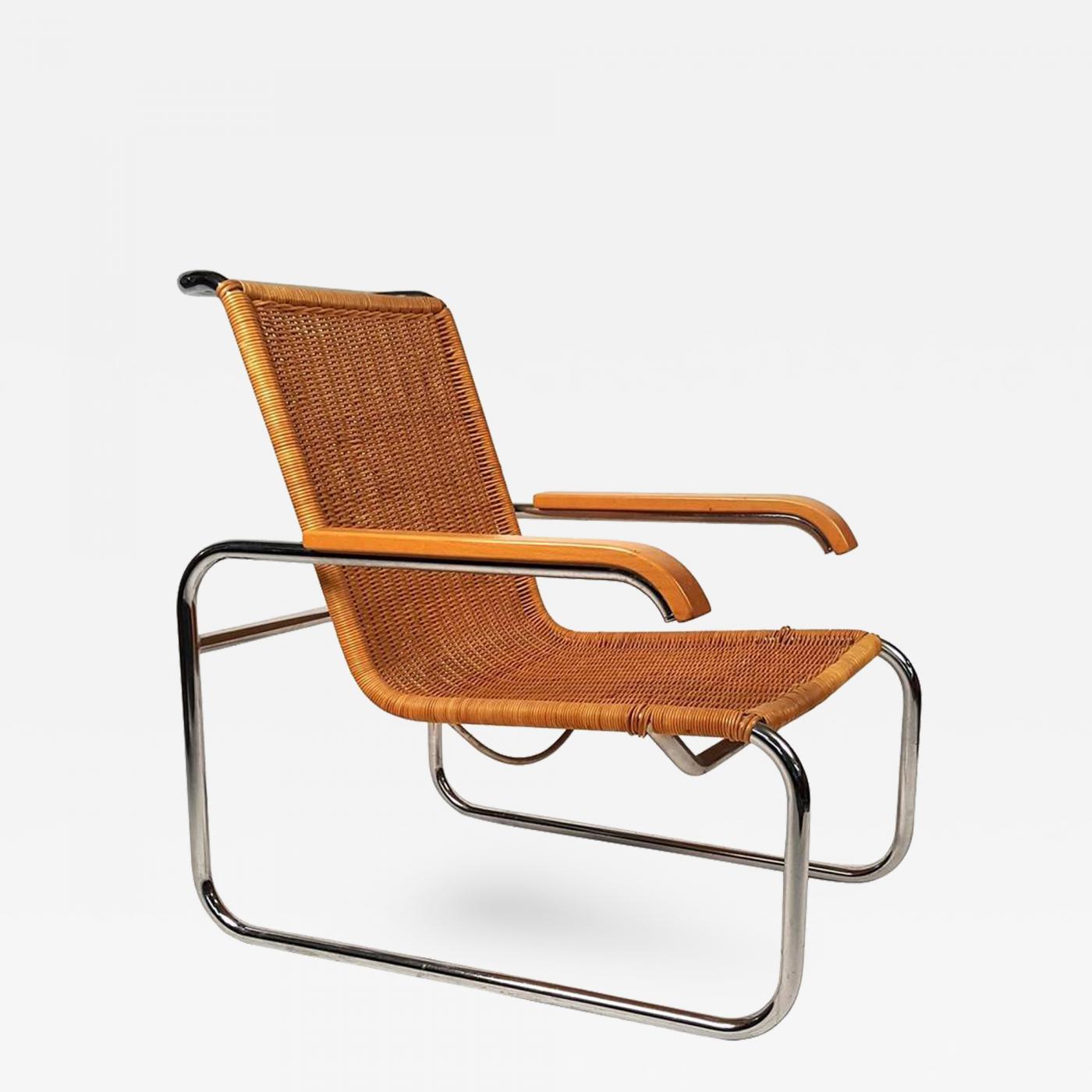
Marcel Breuer Marcel Breuer B35 Lounge Chair
This record is a work in progress. If you have additional information or spotted an error, please send feedback to [email protected]. Marcel Breuer. Cesca Side Chair (model B32). 1928. Gebrüder Thonet, Vienna, Austria. Chrome-plated tubular steel, wood, and cane. 32 x 18 x 21 3/8 x 18 1/8" (81.3 x 45.7 x 54.3 x 46 cm). Purchase. 835.1942.

Silla Wassily Marcel Breuer style Cuero Premium
Model B5 Chair 1926-1927 (designed), 1926-1927 (manufactured) This chair was a refinement of the first, somewhat complex tubular-steel chair without arms that Marcel Breuer designed in 1926. That design was used to furnish interiors at the Dessau Bauhaus school and in its masters' houses.

Marcel Breuer y la Bauhaus Dessau Tecnne arquitectura y contextos
Lattenstuhl ti 1a, Autor: Marcel Breuer, 1924 Siebenbrodt, Michael (2000): Bauhaus Weimar. Entwürfe für die Zukunft, Ostfildern-Ruit.
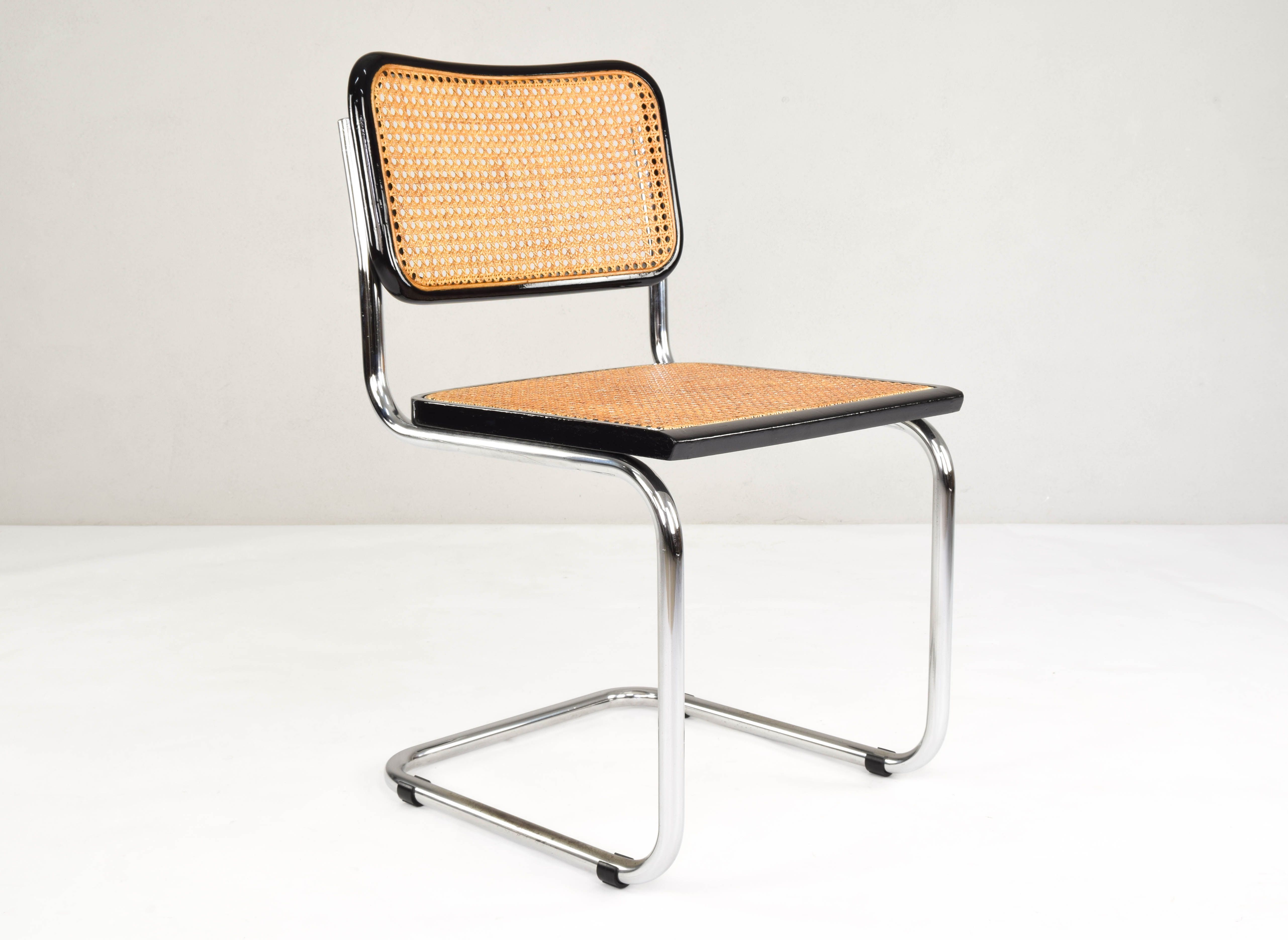
Set of 6 MidCentury Modern Marcel Breuer B32 Cesca Chairs, Italy, 1970s Design Market
The Cesca chair ( / ˈtʃɛskə /) is a chair design created in 1928 by the Hungarian-American architect and designer Marcel Breuer. It consists of a tubular steel frame and a rattan seat and backing. [1] [2] The design was named as a tribute to Breuer's adopted daughter Francesca (nicknamed Cesca). [3]
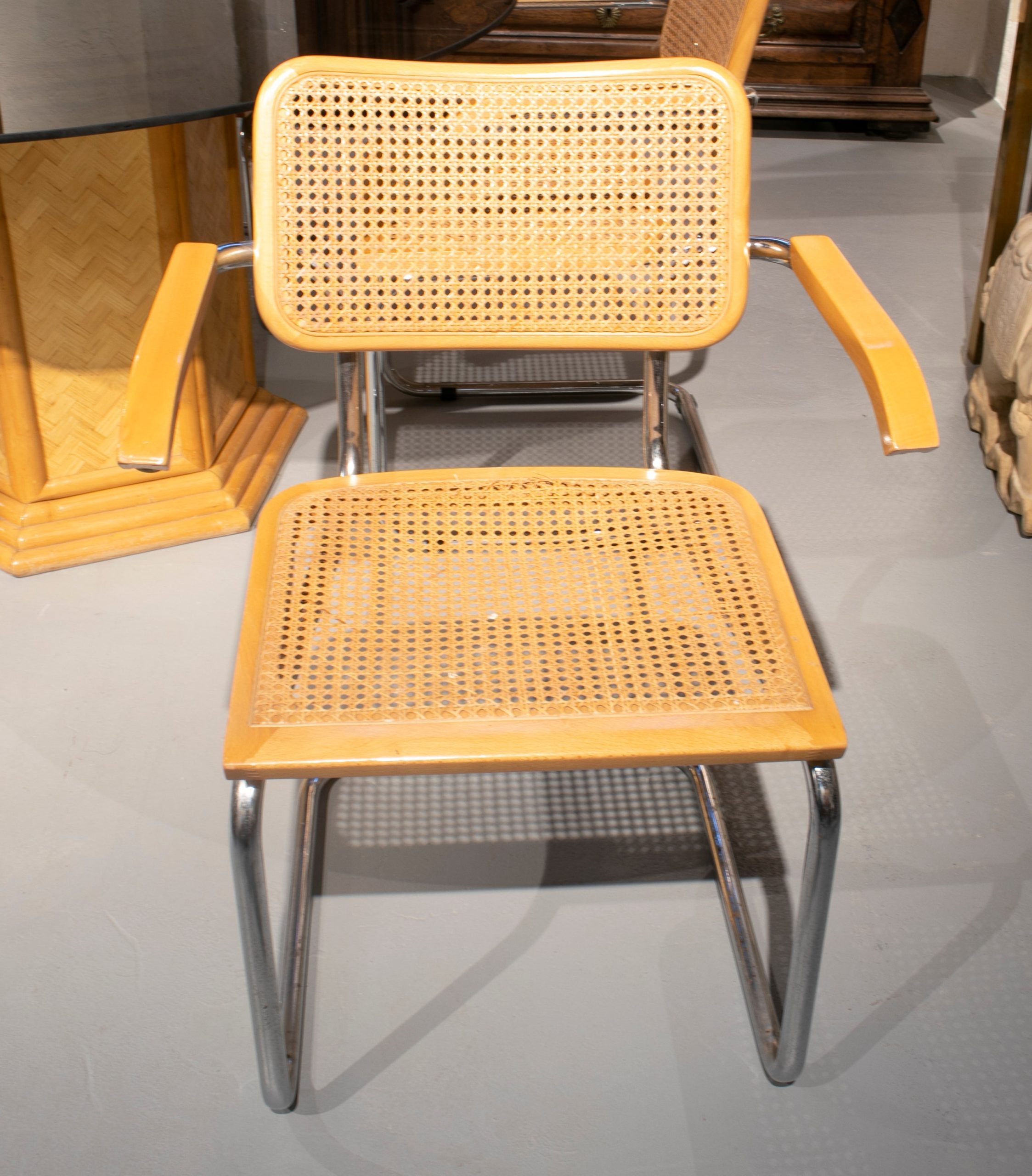
Silla Cesca de Mediados de Siglo con Brazos de Marcel Breuer, Italia, 1970 La Fábrica de Hielo
5 abril, 2021 Marcel Breuer Maestro de la Bauhaus Dessau 1924 1928 "El traslado de la Bauhaus a Dessau, que podría haber perjudicado el material y haber tenido un efecto desintegrador, se manifestó, por el contrario, como extremadamente provechoso para su estabilización y consolidación.
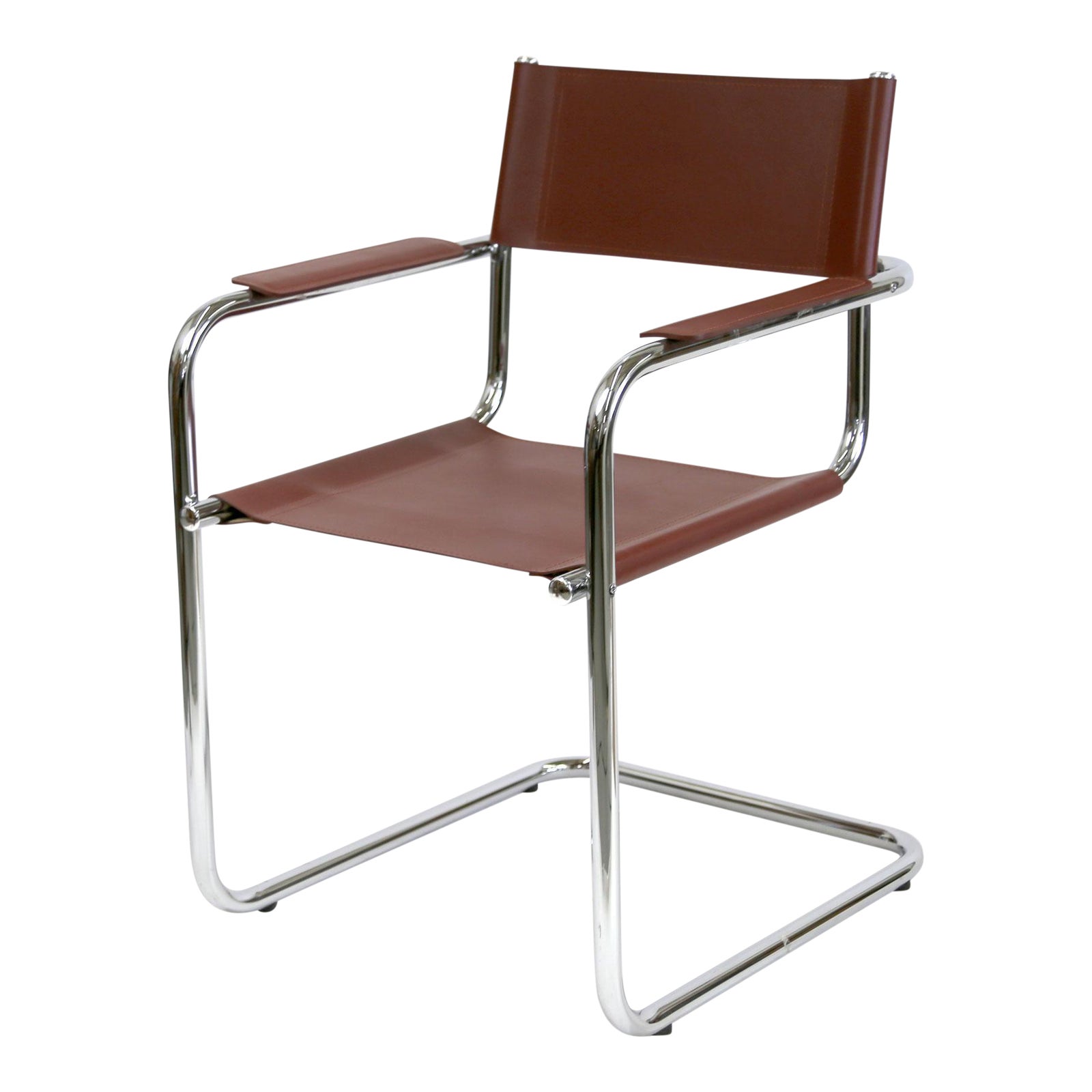
Marcel Breuer Bauhaus Cantilever Leather & Chrome Tube Frame Chair Chairish
El encuentro entre la rejilla de paja y el tubo de metal, la tradición y la innovación, Thonet y Bauhaus, es lo que caracteriza a la mítica silla B32, más conocida como Cesca, diseñada por Marcel Lajos Breuer.

La silla S32 rebautizada como Cesca y diseñada por Marcel Breuer en 1928 es una de las sillas
Gallery label. 'Club' armchair, model B3 1925-6 Designed by Marcel Breuer (1902-81) Germany Manufactured 1927-8 by Standard Möbel, Berlin, or Thonet Möbel, Frankenberg Nickel-plated tubular steel, screwed together Upholstery (partly original): cotton canvas Supported by the Friends of the V&A Museum no. W.2-2005 This is one of the.

Marcel Breuer diseñó la silla Wassily inspirándose en su bicicleta Cultura Inquieta
En su famoso diseño de silla de 1926, abrazó el uso de acero tubular, que podía doblar en lugar de martillar en una forma que se asemejaba más a la facilidad de una línea trazada que a la artesanía de la carpintería ensamblada.

Silla Cesca de Marcel Breuer en Ámbar Muebles
Above, Marcel Breuer's version of the cantilever chair, the B55 and the B8 stool, both created for Thonet in 1932. Steel tubing, when applied to furniture for the home, was one of the most dramatic innovations in 20th-century design. It created a striking new profile not just for chairs, but also desks and dining and coffee tables.
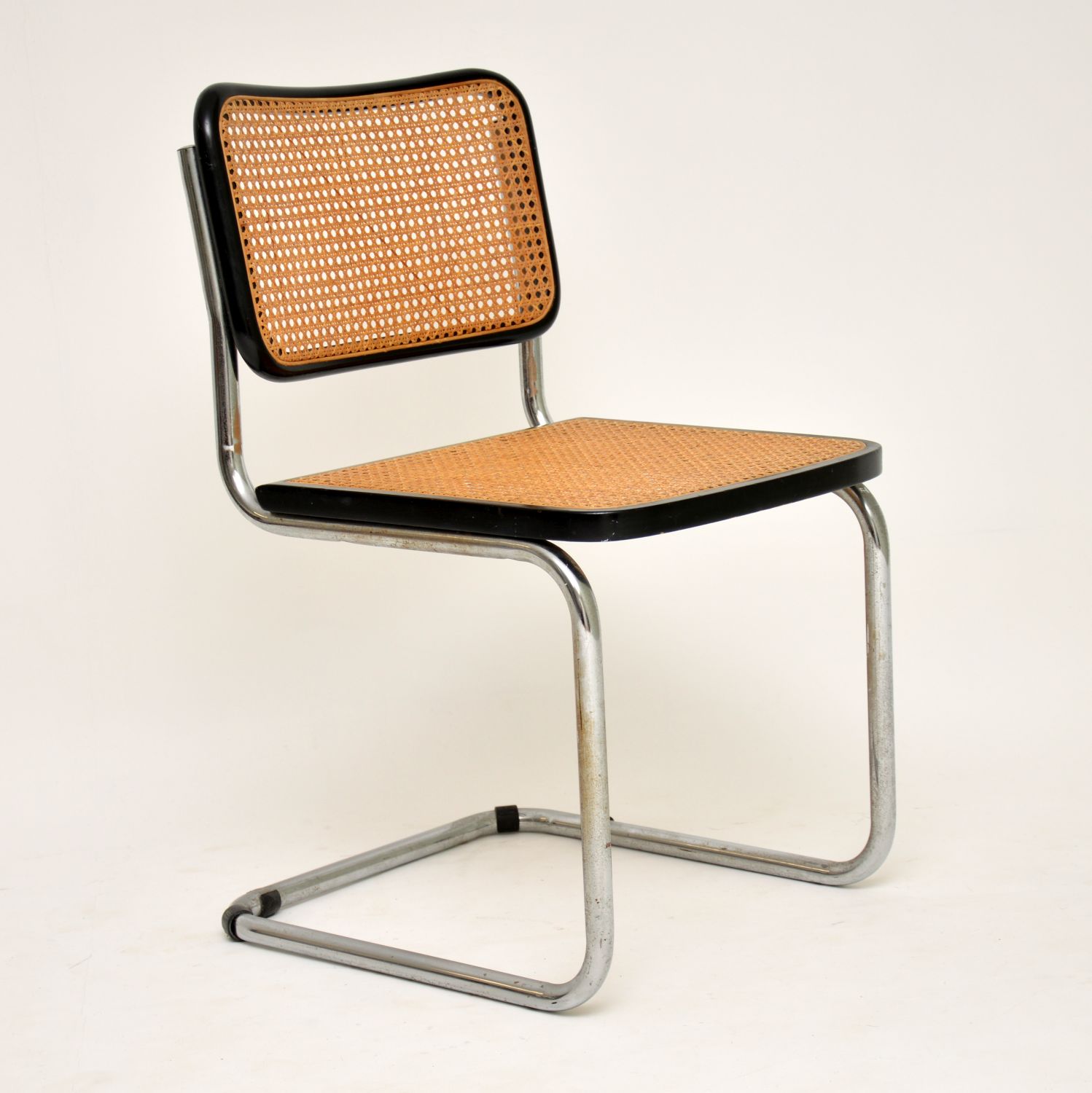
1980's Vintage Cesca Chair by Marcel Breuer Retrospective Interiors Retro Furniture, Vintage
The Wassily Chair - The Groundbreaking Story Behind Marcel Breuer's MasterpieceDive into the captivating history of the Wassily Chair, Marcel Breuer's ground.

Clásicos Silla Wassily por Marcel Breuer DESIGNAHOLIC
Marcel Breuer's Wassily Chair. A higher quality reproduction featuring the original specifications and features. Inspired by the handle bars of the vintage ".
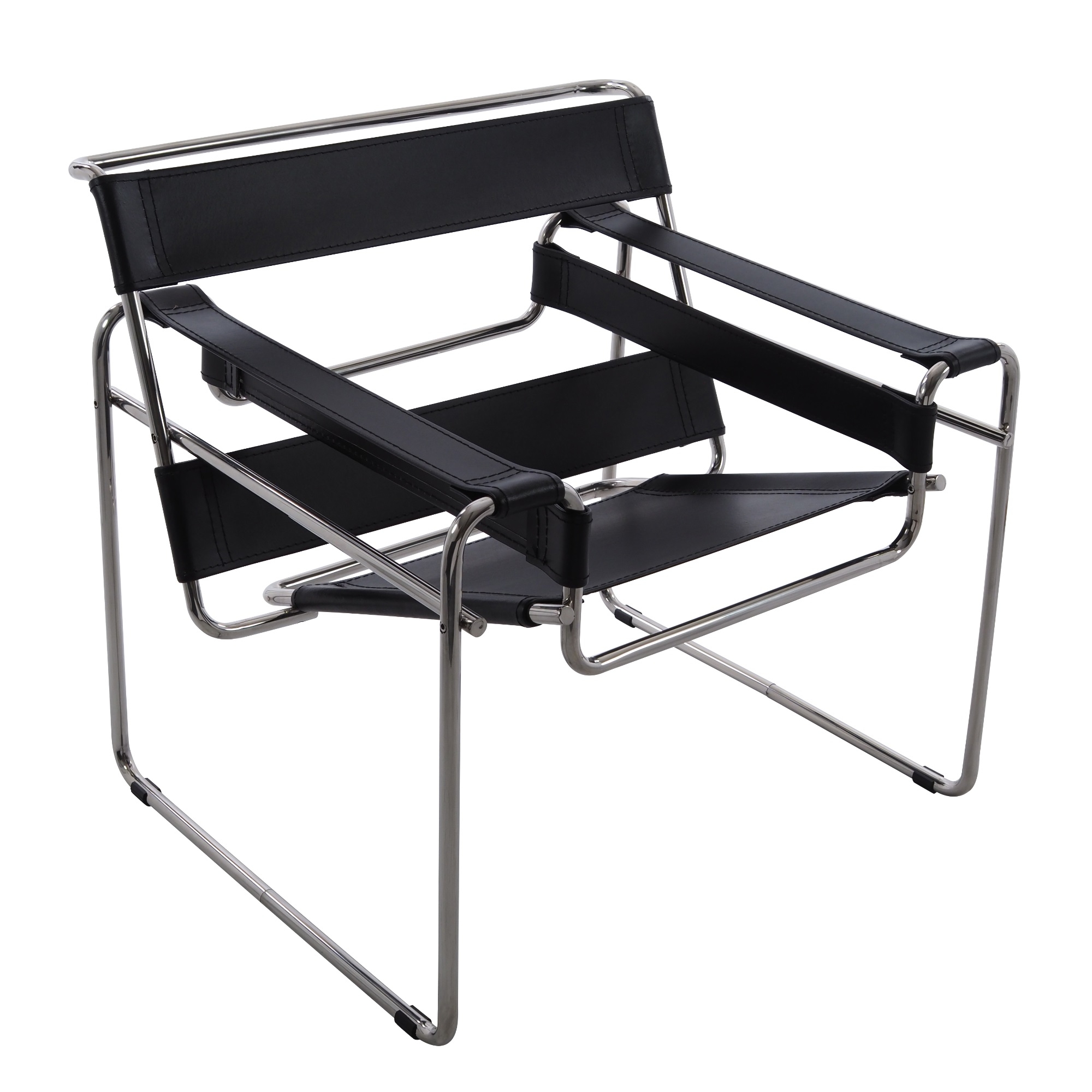
Marcel Breuer Wassily style lounge chair
Marcel Breuer proyectó la No. B3 Chair, mejor conocida como silla Wassily, para la residencia de Kandinsky en Dessau, Alemania, donde estaba la Bauhaus School.. Su inspiración nace desde un modelo de acero de bicicleta, realizado anteriormente, la "Bicicleta Alder". Para esos años, el fabricante de acero alemán Mannesmann había ideado un proceso para producir tubos de acero sin.